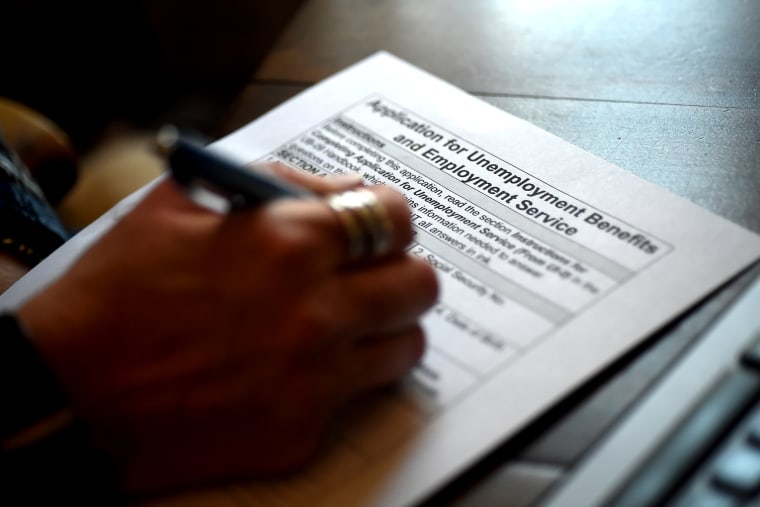As regular readers know, progress on weekly unemployment claims has been hit or miss in recent months, though the new report from the Labor Department pointed in a more encouraging direction.
In the week ending February 20, the advance figure for seasonally adjusted initial claims was 730,000, a decrease of 111,000 from the previous week's revised level. The previous week's level was revised down by 20,000 from 861,000 to 841,000. The 4-week moving average was 807,750, a decrease of 20,500 from the previous week's revised average.
To be sure, this is a welcome improvement, especially after the data from the last several weeks. That said, today's new figure is still higher than the tallies we saw in November, and this is the 49th consecutive week in which the number of Americans filing for unemployment benefits was worse than at any time during the Great Recession.
In other words, if opponents of President Joe Biden's proposed COVID relief package, which the White House refers to as the "American Rescue Plan," see this report as proof that such a bill is now unnecessary, they are mistaken.
Indeed, Federal Reserve Chair Jerome Powell hasn't explicitly endorsed the Democratic proposal, but in Capitol Hill testimony on Tuesday, he reminded lawmakers that the economy is far from healthy.
There are still deep holes in the economy, Powell told the Senate Banking Committee, pointing to high unemployment and the recession's disproportionate impact on Black and Hispanic Americans and women. [...]Economic activity rebounded in the summer after much of the economy reopened from spring shutdowns. But that momentum "slowed substantially," Powell said, with sectors that rely on person-to-person contact, like hospitality and entertainment, enduring the worst blows. That burden has also largely fallen on low-wage workers, Black and Hispanic Americans and other minority groups, Powell said.
He added, "There's a long way to go," he said.
To that end, the Democratic-led House is scheduled to vote tomorrow on the ambitious relief package. It's expected to pass.

